
Nick Ferrari 7am - 10am
30 June 2020, 11:41
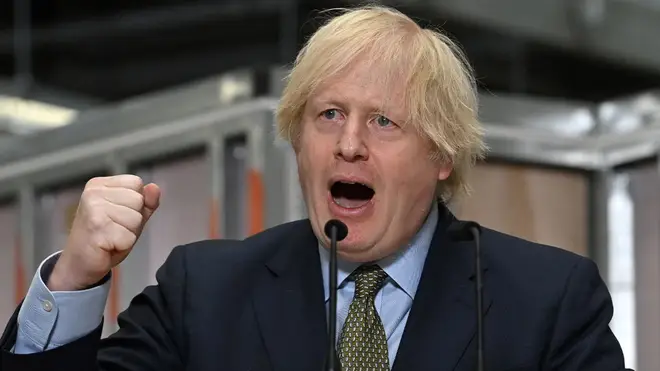
The Prime Minister has said that "austerity isn’t the way out" of the coronavirus crisis as he unveiled a £5bn infrastructure plan to revitalise the UK economy.
Boris Johnson set out his plans for revolutionising planning across the country during a speech in Dudley on Tuesday.
He pledged billions of pounds of investment to help the UK work through the aftermath of the coronavirus pandemic.
One of the first tasks on his agenda will be to "make it easier to build homes where people actually want to live".
Speaking in Dudley, the Prime Minister said: "This is a Government that is wholly committed not just to defeating coronavirus but to using this crisis finally to tackle this country's great unresolved challenges of the last three decades.
"To build the homes, to fix the NHS, to tackle the skills crisis, to mend the indefensible gap in opportunity and productivity and connectivity between the regions of the UK. To unite and level up.
"To that end, we will build, build, build.
"Build back better, build back greener, build back faster, and to do that at the pace that this moment requires."
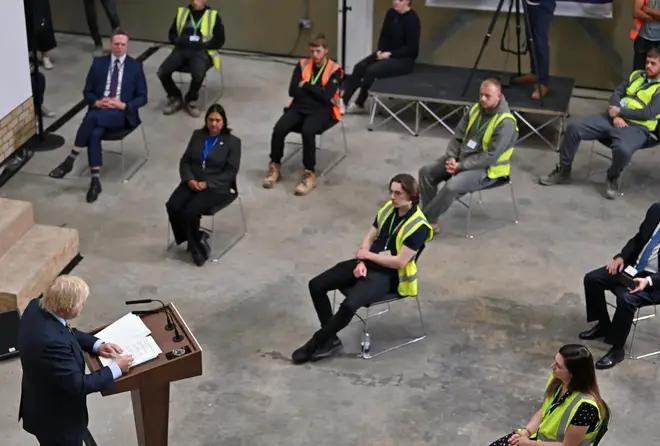
During his speech, the Prime Minister announced the launch of a planning Policy Paper, setting out plans for comprehensive reform of England’s seven-decade old planning system.
He said he will follow in the footsteps of president Franklin D Roosevelt, who led the US out of the Great Depression in the 1930s, by investing in infrastructure projects to help stimulate the nation's recovery from the coronavirus pandemic.
As part of the country's infrastructure reform, Boris Johnson announced:
- £1.5 billion to be allocated this year to hospital maintenance.
- More than £1 billion for a 10-year school rebuilding programme.
- £100 million to be spent on road projects.
- £900 million for "shovel-ready" local growth projects in England during 2020/21.
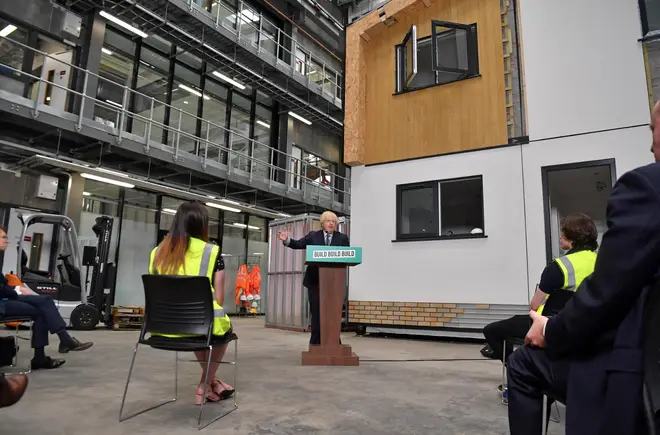
Mr Johnson said Britain needs to be able to move with "levels of energy and speed that we have not needed for generations" in the wake of the coronavirus crisis.
Delivering his keynote speech at a technical college in the West Midlands, the Prime Minister said: "It may seem a bit premature to make a speech now about Britain after Covid when that deceptively nasty disease is still rampant in other countries and when global case numbers are growing fast.
"And when many in this country are nervous, rightly, about more outbreaks - whether national or local - like the flareup in Leicester.
"Where, as I promised, we are putting on the brakes, and I thank the people of Leicester for their forbearance.
"And yet we cannot continue simply to be prisoners of this crisis. We are preparing now, slowly, cautiously, to come out of hibernation and I believe it is absolutely vital for us to set out the way ahead so that everyone can think and plan for the future: short, medium and long-term.
"Because if the Covid crisis has taught us one thing: it's that this country needs to be ready for what may be coming, and we need to be able to move with levels of energy and speed that we have not needed for generations."
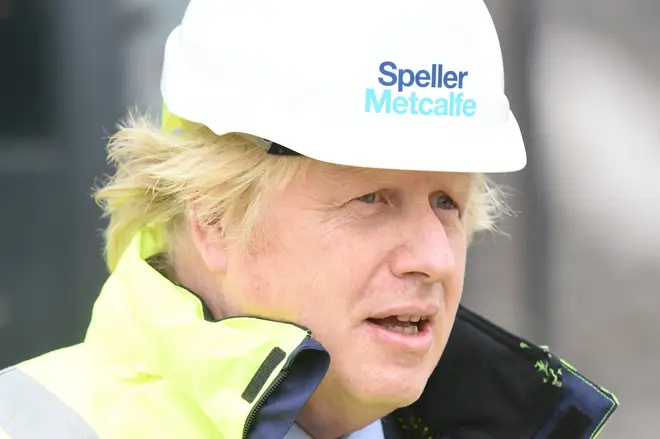
Boris Johnson pledged to "unleash" the potential of the "entire country".
The Prime Minister said: "I believe in building people up: giving everyone growing up in this country the opportunity they need.
"Whoever you are, whatever your ethnicity, whatever your background, and there are certain things that are indispensable for that opportunity: the hospital you're born in, the schools you go to, the safety of the streets where you grow up.
"And this Government has not forgotten that we were elected to build 40 new hospitals - and we will. Matt Hancock is setting out the list in the next few days, and that is just the beginning."
Mr Johnson also said the Government would not "wait" to fix the problems in social care, and said plans were being finalised.
He added: "It's time that the system recognised that talent and genius are expressed as much by hand and by eye as they are by a spreadsheet or an essay."
Referencing figures which suggest a pupil from a London state school is 50% more likely to go to a top university than one in the West Midlands, he said: "That is not only unjust - it is such a waste of human talent.
"We will unleash the potential of the entire country."
Boris Johnson also said the nation must act now in "this interval" to plan the response to the coronavirus crisis and fix the problems "most brutally illuminated in that Covid lightning flash".
He said: "We all knew when we went into lockdown that there would be huge economic costs, we could see what would happen and yet we did it, the United Kingdom, in a display of solidarity not seen since the Second World War.
"And so today we must combine that energy and drive and that concentrated burst of collective willpower that protected the NHS and controlled the virus and saved literally hundreds of thousands of lives and we must work fast because we've already seen the vertiginous drop in GDP and we know that people are worried now about their jobs and their businesses.
"And we're waiting as if between the flash of lightning and the thunderclap with our hearts in our mouths for the full economic reverberations to appear.
"And so we must use this moment now, this interval to plan our response and to fix of course the problems that were most brutally illuminated in that Covid lightning flash."
He listed these as the social care system and the parts of Government "that seemed to respond so sluggishly".
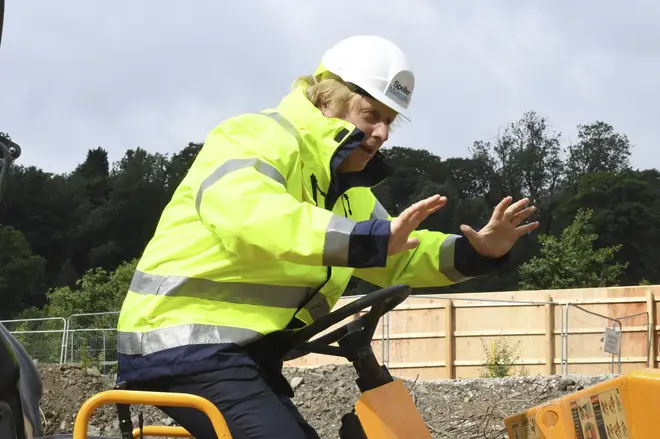
The Prime Minister said that "developers will still need to adhere to high standards and regulations, just without the unnecessary red tape."
Boris Johnson announced new regulation that will give greater freedom for buildings and land to change use without planning permission in a bid to kick start the construction industry and speed up rebuilding.
He also said he wants to make it easier for new homes to be created through regeneration of out of use buildings.
The new rules mean that existing commercial properties, including newly vacant shops, can be converted into homes more easily.
The main changes announced include:
- More types of commercial properties, such as shops, offices and restaurants, will have total flexibility to be repurposed through reform of the Use Classes Order
- Buildings that are used for retail would be able to be permanently used as a café, office or other commercial purpose without requiring planning application or local authority approval - however, these new flexibilities will not apply to pubs, libraries, village shops and other types of uses "essential to the lifeblood of communities"
- A wider range of commercial buildings can now change to residential use without the need for a planning application
- Builders will no longer need a planning application to demolish and rebuild out of use residential and commercial buildings if they are being rebuilt as homes
- Property owners will be able to build above their properties via a fast track approval process, although neighbours will have to approve this
The Prime Minister also announced that work will begin to look at how land owned by the government can be managed more effectively.
A new cross-government strategy will look at how public sector land can be put to better use, including home building, improving the environment, contributing to net zero goals and injecting growth opportunities into local communities across the country.

Former Chancellor Ken Clarke on possibility of austerity after coronavirus
The Prime Minister also pledged more evenly spread funding across the country.
He said: "Too many parts of this country have felt left behind, neglected, unloved, as though someone had taken a strategic decision that their fate did not matter as much as the metropolis.
"And so I want you to know that this Government not only has a vision to change this country for the better, we have a mission to unite and level up - the mission on which we were elected last year.
"If we deliver this plan together, then we will together build our way back to health.
"We will not just bounce back, we will bounce forward - stronger and better and more united than ever before."
The measures to support home building across England include:
- A £12 billion affordable homes programme that will support up to 180,000 new affordable homes for ownership and rent over the next 8 years
- A 1,500 unit pilot of ‘First Homes’, meaning houses that will be sold to first time buyers at a 30% discount
- Funds from the £400 million Brownfield Land Fund have been allocated to the West Midlands, Greater Manchester, West Yorkshire, Liverpool City Region, Sheffield City Region, and North of Tyne and Tees Valley to support around 24,000 homes being built
- The Home Builders Fund to help smaller developers access finance for new housing developments will receive additional £450 million boost and is expected to support the creation of around 7,200 new homes